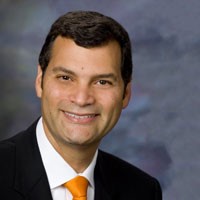Cooperative Extension: Is it Community Engagement?
By Jorge H. Atiles
In today’s university environment, there is a trend to apply the word “engagement” to any type of exchange or interaction with internal and external audiences, groups, or stakeholders. This has resulted in an excessive use of the word engagement. The overuse confuses the meaning of “community engagement” as articulated in the 1999 Kellogg Commission report, Returning to Our Roots: The Engaged Institution, which called for American universities to return to their roots and be engaged with the broader society of which they are a part (Kellogg Commission on the Future of State and Land-Grant Universities, 1999). Not all the programmatic initiatives employing the word engagement today represent the core values of community engagement set forth by the Commission, such as reciprocity, mutual benefit, and direct connection to university curricular, research, and service missions.
 An implicit reciprocal and respectful relationship between community and university is key to the advancement of engagement. But not all outreach, Extension, research, or teaching can be considered university/community engagement as defined by the Kellogg Commission or the Carnegie Foundation’s elective community engagement classification (“Carnegie Community Engagement Classification,” .n.d.). To further explore this idea, consider the following question: when should Cooperative Extension, the largest service unit of the nation’s land-grant university system for the last 100 years, be considered community engaged? Look at its basic practices. The extent to which these practices are followed in each state level Extension Service will determined if it truly is community engagement.
An implicit reciprocal and respectful relationship between community and university is key to the advancement of engagement. But not all outreach, Extension, research, or teaching can be considered university/community engagement as defined by the Kellogg Commission or the Carnegie Foundation’s elective community engagement classification (“Carnegie Community Engagement Classification,” .n.d.). To further explore this idea, consider the following question: when should Cooperative Extension, the largest service unit of the nation’s land-grant university system for the last 100 years, be considered community engaged? Look at its basic practices. The extent to which these practices are followed in each state level Extension Service will determined if it truly is community engagement.
First, Extension county educators hold local program advisory committee meetings with community members to gather information, opinions, and expert advice on their most critical needs and issues of concern. The educators provide this assessment of needs to state/regional Extension specialists for analyses and review. At this phase of engagement, there is an expectation that mutual interest will be served. Extension gets information and the community, in turn, gets educational programs and resources. In fact, since the community’s local government contributes to the funding formula of Cooperative Extension employees, that expectation of reciprocity is set from the start.
Second, Extension specialists serve as subject-matter experts, conducting and translating research into user-focused materials for educational programs, curricula, fact sheets, and other resources designed to effectively address the critical issues of communities. One essential aspect of the production of these Extension programs is the input and expertise we seek from our county educators, community partners, and the targeted audiences in the community. For instance, curriculum development often incorporates input on effective practices and pedagogy from experienced educators. Knowing our audiences is critical and testing curricula, fact sheets, and other educational tools with the public is imperative to developing, implementing, and evaluating effective programs that promote change. In some cases, community members may lend their expertise, know-how, and connections to the creation of these tools. The process of co-creation materializes results. A process that is directly connected to the university’s mission, Extension curriculum and discovery.
Third, Extension primarily operates on a train-the-trainer model. In this model, specialists train county educators and, in some programs, Extension volunteers in the use of educational resources. In turn, these Extension educators and volunteers teach or train the public or targeted audiences on how to adopt evidence-based practices to address critical issues, enhance their quality of life, and/or improve their economic wellbeing. Again, Extension pedagogy is both challenged and enriched in the process of co-creation, co-teaching and evaluation when it engages the community.
Fourth, educational programs are expected to yield positive change for the community. Extension conducts program evaluation to gather community feedback, which informs changes and improvements to Extension programs. This evaluation is important for improving the impacts of both face-to-face and online-based programs on the community and the university.
The implicit efficiencies of this educational model enable the Cooperative Extension service to use its county-based infrastructure to promote knowledge exchange between communities and universities. The reciprocal, mutually beneficial nature of this exchange of knowledge allows Extension to be truly community engaged. It is important to note that knowledge generated this way must include input from both community and university partners. In order to achieve the most impactful changes around critical issues, Extension educators and specialists must listen to community stakeholders, incorporate their feedback into the development of resources and evaluation tools, and pilot solutions with targeted audiences. County educators are critical to this process as they hold the credibility and trust of their local communities and ultimately will be the ones delivering the programs. An Extension program that does not follow this practice is not truly community engaged. Rather, it is a program created in isolation of the community, without its input and evaluation of effectiveness. Such programming does not build community, and will not sustain another 100 years of the Cooperative Extension in the nation.
References
Carnegie community engagement classification. (n.d.). Retrieved from https://www.brown.edu/academics/college/swearer/carnegie-community-engagement-classification
Kellogg Commission on the Future of State and Land-Grant Universities. (1999). Returning to our roots: The engaged institution (Report No. 3). Washington, DC: National Association of State Universities and Land-Grant Colleges. Retrieved from /library/returning-to-our-roots-the-engaged-institution/file
Jorge H. Atiles is associate dean, extension and engagement, College of Human Sciences at Oklahoma State University.
- Commission on Economic & Community Engagement
- Council on Engagement & Outreach
- Economic Development & Community Engagement



Stay Connected
X (formerly Twitter)
Facebook
YouTube
LinkedIn
RSS